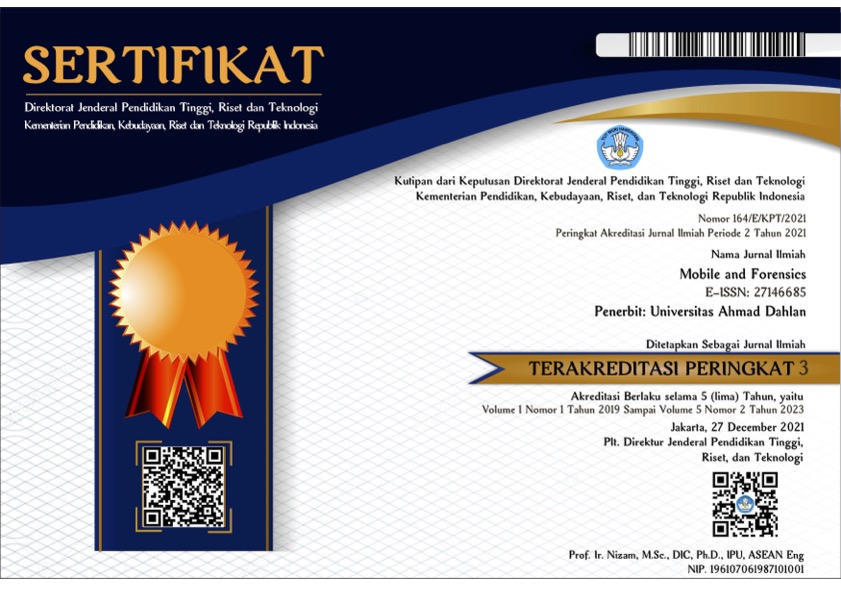
Focus and Scope
Based on the provided areas, the focus and scope of the Mobile and Forensics (MF) Journal can be categorized into the following main areas:
- Cybersecurity and Computer Forensics: This includes topics related to protecting digital systems, networks, and data from cyber threats, as well as the investigation and analysis of digital evidence in legal proceedings.
- Internet of Things (IoT): This encompasses research on interconnected devices, sensors, and systems that communicate and interact with each other via the internet.
- Electronics Engineering and Software Engineering: This involves the design, development, and implementation of electronic systems and software applications, including methodologies and techniques for software development.
- Mobile Technology and Applications: This covers research on mobile devices, mobile operating systems, mobile applications, and their impact on various aspects of society and industry.
- Information Engineering and Artificial Intelligence: This includes research on information processing, data analytics, machine learning, and other AI-related topics applied to engineering and technology.
- Image Processing and Computer Vision: This involves the analysis, interpretation, and manipulation of digital images and videos, as well as research on computer vision algorithms and systems.
- Interactive Multimedia: This encompasses research on multimedia technologies, user interfaces, human-computer interaction, and immersive media experiences.
- Computer Networking: This includes research on networking protocols, architectures, security, and performance optimization in digital communication systems.
- Information System Development Methodology: This involves methodologies, approaches, and best practices for designing, developing, and implementing information systems to meet organizational needs.
- Strategic Information Systems: This includes research on the use of information technology to support strategic decision-making and improve organizational performance, including topics like business intelligence, knowledge management, and executive information systems.
- E-Learning and E-Business: This covers research on the use of technology in education (e-learning) and various aspects of electronic business (e-business), including e-commerce, e-marketing, e-government, and e-health.










 Mobile and Forensics (MF)
Mobile and Forensics (MF)
